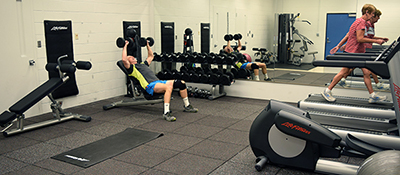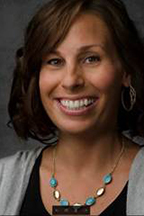
Movements are popping up all over the place. From “Black Lives Matter” to “Me Too,” individuals are banding together to make a difference.
The College of Veterinary Medicine has its own movement – one that hits close to home. “Revolution Wellness” was formed last spring by veterinary medicine students, each of whom felt passionate about their profession, students and wellness.
“We started out as a group to address mental health but we soon found out it was more about the need to change our culture and the stigmas surrounding how we define and deal with failure, or the perception of failure, in veterinary medicine,” said Holly Salzbrenner, a fourth-year veterinary medicine student.
For Dr. Pat Halbur, the Stephen G. Juelsgaard Interim Dean of Veterinary Medicine, supporting “Revolution Wellness’” efforts was a no-brainer.
“Clearly mental health is a major challenge for our profession and for our students,” he said. “The students have done a great job of removing the stigma over seeking mental health services and as a college we are committed to investing resources to address the needs where we need to improve.”

Those investments were evident to students returning to campus this fall as “Revolution Wellness” has made an immediate impact on wellness in the College. The most visible change is a new 24/7 Fitness Room in the College.
But perhaps the most important change is the addition of two half-time mental health counselors to the College staff. Previously students seeking help in this area had to go to main campus. The new counselors will be on-site in the College five days a week.

Lauren Youngs is the clinical therapist and Counseling Service coordinator. In addition to providing confidential, brief therapy to students, she coordinates outreach activities centered on creating a culture of wellness for veterinary students. Despite her vast experience, Youngs knows she faces a challenge.
“Veterinary medicine is a unique and rigorous program,” the licensed mental health counselor said. “As we move forward, we will use the nine dimensions of wellness to encourage healthy approaches to life while understanding the special challenges facing veterinary students.”
That’s music to the ears of many students including fourth-year student Danielle Harrington. Harrington was the driving force of “Revolution Wellness” and she is concerned for her fellow students, many who are consumed by school-related activities for more than 16 hours a day.
“Our heavy credit course load, unbalanced debt-to-income ratio, and historically high degree of disassociation has contributed to burnout before we even reach practice,” Harrington said.
Harrington says a full-time on-site counselor is a great initial step in this battle. She hopes Revolution Wellness will create a shift in the vet med culture.
“Emotional intelligence is necessary to succeed in this profession, but it requires time and energy,” she said. “We hope to inspire others to put the work in and embrace vulnerability, imperfection and self-awareness. We want our peers to know they are supported and no one has to go through these four years alone.”
March 2018
